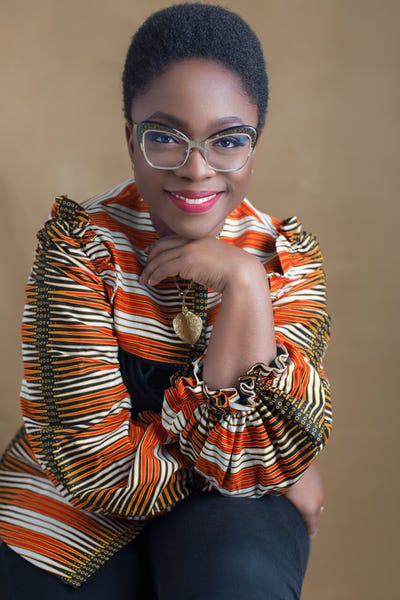3 principles businesses can practice to promote diversity, equity and inclusion3 principles businesses can practice to promote diversity, equity and inclusion
Commitment to these principles will ensure BIPOC employees have the opportunity to grow and thrive within a company.

According to the 2019 U.S. census, over 39% of U.S. citizens identify as nonwhite.
When it comes to businesses, though, a disproportionate discrepancy arises. Over 2 million black-owned businesses operate here, proving that Oprah Winfrey and Rihanna are just the tip of the iceberg when it comes to companies owned by high-profile black, indigenous and people of color (BIPOC) entrepreneurs. Millions of others are also breaking glass ceilings across niches and industries.
These BIPOC entrepreneurs are characterized by passion, motivation and innovation; we must stand by, nurture and champion a growth mindset in BIPOC communities everywhere.
Unfortunately, American companies are still making costly mistakes with regard to diversity, equity and inclusion (D.E.I.). Many only view D.E.I. initiatives as strategic marketing imperatives instead of recognizing the importance of creating diverse marketing teams from the top down. Shifting environments to reflect the brand messaging they want to portray has also proven to be a stumbling block. These mistakes create potential for savvy consumers to perceive abrand as disingenuous, teeing it up to be cancel culture’s next target.
Here are some questions to ask yourself as we end a tumultuous 2020 and look toward a (hopefully) better 2021.
Diversify in the right way
It’s okay to admit if your company has been exclusive of BIPOC applicants in the past. Recognizing this is a significant first step. Now, let’s do something about it. Analyze your workforce and take actionable steps to diversify it.
What is the makeup of your workforce? This means demographics like gender, race, ethnicity, age, sexual orientation and veteran status. Companies often make the mistake of focusing on increasing diversity without building a strong foundation to support it once they have it. “Diverse” employees will feel excluded if your work subculture doesn’t embrace different perspectives.
Diversity is an opportunity, not a checkbox
More than ever before, businesses are flaunting BIPOC models in marketing campaigns and hiring “first-ever” BIPOC employees to certain positions, then releasing press announcements about it. Using BIPOC employees to signal “wokeness” and social alignment without truly practicing what you preach is performative and dishonorable.
Diversity is not a path towards self-promotion. It should be a sustained, cultural shift toward mutual gain and equality.
Be honestly and authentically inclusive
Inclusion calls for everyone's contributions to be valued. All individuals should have the opportunity to do their best work to uplift the company.
Inclusion is about belonging. Start by making an effort to invite your diverse team to make decisions. Make room for everyone at the table, no matter how insignificant their role is. Every person’s voice adds value, so strive to create balance among all BIPOC employees. No one person can, or should, ever be the “token" human to represent an entire community.
Another way of making your diverse team feel they belong is to establish trust. Make sure they know that they will be heard out and their concerns equitably addressed.
Many people from marginalized backgrounds develop survival mechanisms that keep them from speaking up about their experiences or reporting any discriminatory action taken against them —this silence isn’t healthy and gives your company bad press.
Create a safe space for all your workers so they can open up about their experiences safely. Show your support through advertising both formal and informal reporting structures and make them safe and confidential. Now this ensures security not only for your employees but also communicates an environment of equality, tolerance and inclusivity.
Without equity, companies are STILL not getting it right
I hear so many companies tout their D.E.I. efforts. To these statements I often ask the question: Is equity being factored in here? This, in my opinion, is the most important part of D.E.I. Without fair treatment, equal opportunity and fairness in access to information and resources for all, none of this really matters.
Are you identifying and eliminating barriers that prevent the full participation of some groups? Are you reviewing procedures, processes, policies and programs? What are you doing to remove the systemic bias, which is a root cause of many disparities within an organization and in our communities? And how can you knock down barriers?
What is your company doing consistently to ensure the diverse and inclusive environment elevates to provide BIPOC with opportunities to grow, contribute and be integral to operations?
It’s going to take some time for everyone to get it right. And the progress may be slow. But I’m hoping that the mindset shifts and the current narrative changes soon.
All that matters is that we collectively keep the conversation going and continue to take the incremental steps that lead to key tipping points.
Please do not make the mistake of settling for the vanity optics that “diversity” provides without the bolts and nuts to hold the frame together. Without an inclusive environment and a strategic plan for true equity, your D.E.I. plans will be, at best, fleeting.
Have some big ideas or thoughts to share related to the natural products industry? We’d love to hear and publish your opinions in the newhope.com IdeaXchange. Check out our submission guidelines.
About the Author
You May Also Like



.png?width=700&auto=webp&quality=80&disable=upscale)

